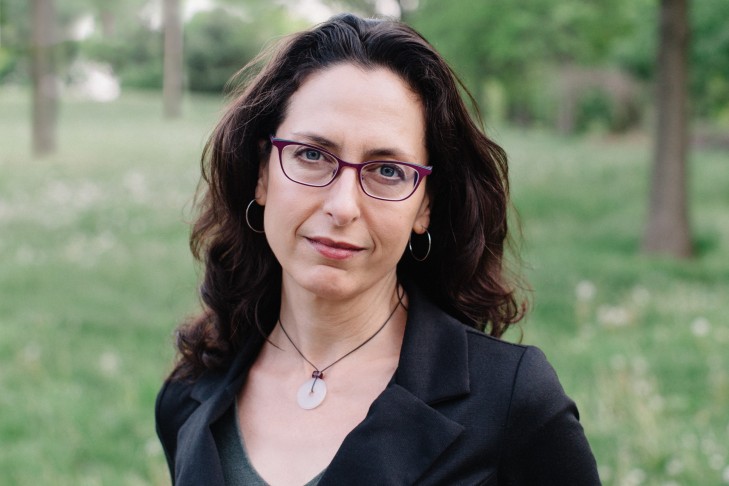“Relativity,” a story from Daphne Kalotay’s upcoming book and the winner of the Boston Book Festival’s One City One Story contest, brings forward her family’s history in the Holocaust.
You have a Ph.D. in literature from Boston University, and Saul Bellow was your thesis advisor. Given that impressive literary background, who are some of your influences?
I wrote my dissertation on the writer Mavis Gallant, who has been a huge influence on my work. She was writing about the residual effects of the world wars at a very personal, individual level. She showed me how history leaves its mark and plays its part in everyone’s story. I also love Anton Chekhov’s stories, as well as those of Alice Munro.
The truth is, I saw academia as a diversion from my goal of being a writer. I originally went to Boston University to get an MFA in fiction writing. I wasn’t an English major, and I realized I had a lot of reading to do if I was going to be a writer. What better way to get a lot of reading done than to be a Ph.D. candidate in literature!
You’ve written two novels and a short story collection. How does writing in each of those genres differ?
It was quite a transition to begin writing novels after writing short stories for so long. I had to learn to crack open my sentences and paragraphs to allow for a more leisurely pace of development of the story. I find that when I write a novel the hardest part for me is retaining all the information about the different characters and story lines. With a story, I don’t have that problem. My first novel, “Russian Winter,” started out as a short story with a complex plot line. But there was too much packed into it and I knew it needed to be its own book. I did the work and the research to develop it. That’s how I taught myself to write a novel and how I figured out how to tell that story on a much more expansive palette.
What is the genesis of “Relativity”?
A few things happened before I wrote the story. The summer of 2015 a very dear friend died. I then had a writing residency, where I met a woman who was a social worker for an organization that aided elderly Holocaust survivors. I was immediately intrigued because my father and grandmother are Holocaust survivors. I lost a large portion of my family in the Holocaust. I was very curious about this woman’s job and started imagining what her work was like.
My grandmother, who recently passed away also, inspired “Relativity.” She was truly a survivor of historical tragedies that began with the Holocaust. Like one of my characters in “Russian Winter,” she also lived through the communist occupation of Hungary with my father. They became refugees in North America. I pictured that world on the one hand and then the loss of my friend. These two parts of my life came together to become that story.
How was “Relativity” selected as this year’s One City One Story for the Boston Book Festival?
There was a call for stories, and I submitted “Relativity.” I knew it was a good story and it would probably make it into the final rounds. But I worried that because of the dark subject matter the judges might not consider it. I’m very proud of the Boston Book Festival. The judges believed that people could read a sad story and find something in it. It’s a story about real life.
Has Judaism influenced your work?
I am not conscious of a specifically Jewish influence on my work. Yet I always notice after I write a book there is a key character who is Jewish. In “Russian Winter,” a very important character is a Jewish composer who ends up being persecuted under Stalin. What happens to that character throughout the book because he is Jewish is indispensable to the story. That also happened in my next novel, “Sight Reading.” I thought I was writing about three people and somehow this Israeli Jewish man ended up as the key event in the story. When we write, we write on a conscious level and then the subconscious takes over. The more stories I write, the more strongly these pieces of myself that I have not attended to will take over.
What’s on the horizon for you?
I’m working on a collection of short stories, which includes “Relativity.” In my new work, I find myself writing about my family, my family’s history and the mysteries that we didn’t discuss. My grandmother, who lived through the Holocaust, didn’t want to talk about being Jewish at all. To her, it was a label that ruined her life. Because of that, there are all these things that become lost. Yet I have other relatives who became proud Jews after they survived the Holocaust. In “Relativity,” I tried to capture both experiences.
This interview has been edited and condensed.
Daphne Kalotay will be at the Boston Book Festival on Saturday, Oct. 28, discussing “Relativity.” Find more information here.
This post has been contributed by a third party. The opinions, facts and any media content are presented solely by the author, and JewishBoston assumes no responsibility for them. Want to add your voice to the conversation? Publish your own post here. MORE



